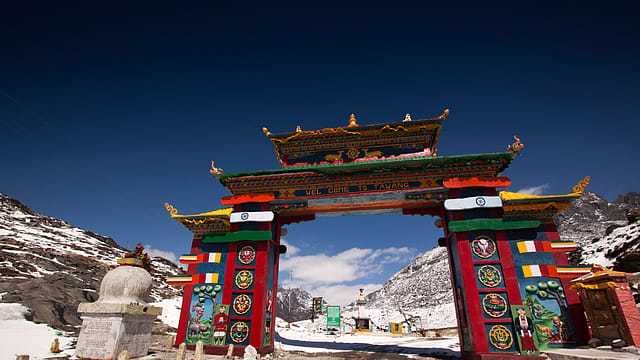Rebranding Arunachal Pradesh
ADVERTISEMENT

Tage Rita Takhe, 38, grew up among kiwi fruit. But she always wondered what the best way was to ensure a good price and smooth transportation of the fruit from her remote but picturesque Ziro Valley home in India’s northeastern state of Arunachal Pradesh.
Why, wine, of course.
Rita is the founder of Naara-Aaba wine, India’s first organic kiwi wine with an annual capacity of around 60,000 litres. While she is still using Chinese bottles, Rita is actively looking to replace them with Indian glassware. Most of the staff that works in her winery are women, and the farmers—all in the neighbourhood, as it were—who she buys the fruit from are devoted to using only organic methods for their cultivation.
All in all, what Rita has is a brand waiting for bigger markets. In fact, her brand could be a metaphor for the stirrings in Arunachal Pradesh, geographically one of the largest states in northeastern India but extremely sparsely populated. Its 1.4 million people are spread at a rate of under 20 people per sq. km across the state.
But sylvan Arunachal Pradesh too has entrepreneurial dreams these days with special government initiatives to propel sustainable and social enterprise. Rita’s Naara-Aaba wine could almost be a metaphor for mushrooming hope of enterprise in regions almost forgotten in the startup conversation. Her success has already propelled more work in the area. Some experiments have been done by the state horticultural produce marketing and processing board with Pune-based Hill Crest Foods to produce a wine called Arun Kiwi—also a white wine like Naara-Aaba.
That’s not all. If you are wondering who drinks all the wine in Ziro Valley, consider that it has become the destination for one of the chicest music festivals in the country. Started in 2012 by musicians, the festival has become a crowd favourite with people from around the world travelling to Ziro Valley, to live in the village homes, or tents in the fields and woods, and vineyards, around the festival venue.
Even though there are no direct flights to Ziro, and getting to Arunachal Pradesh via flight, train/car could take up, it seems to add to the thrill of adventurers coming to Ziro Valley for the festival, and otherwise, rather than dissuade them.
Groups like the Green Hub Project are making films that showcase the benefits of Arunachal Pradesh’s remoteness—as a land where exotic species can be left behind, and if the network on the mobile phone disappears, it is a boon.
And if you need further convincing, look up a place called Abor Country. To reach it, you need to drive down a dirt track into the forest, as if merely wishing to get lost, until suddenly, from the foliage, a spread of log huts open before you.
The people at this ‘river camp’—it borders the gurgling Siang river (and is about 300 km from the capital Itanagar)—told me that Bollywood actor Aamir Khan had recently come by. I stayed, not in the huts, but in a tent at the camp, in the middle of a storm. There was no connectivity. All night it rained. When I woke up, the river was being noisy. It made me think of an ad campaign that perhaps the Arunachal Pradesh government could run: “Arunachal Pradesh—Find Silence”.
As always it is entrepreneurship at the grassroots, and far away from the madding crowd, that I find most exciting. And in Arunachal Pradesh, it is as if the business plan is waiting to be written.
Views are personal.
The author is a historian and a multiple award-winning author.